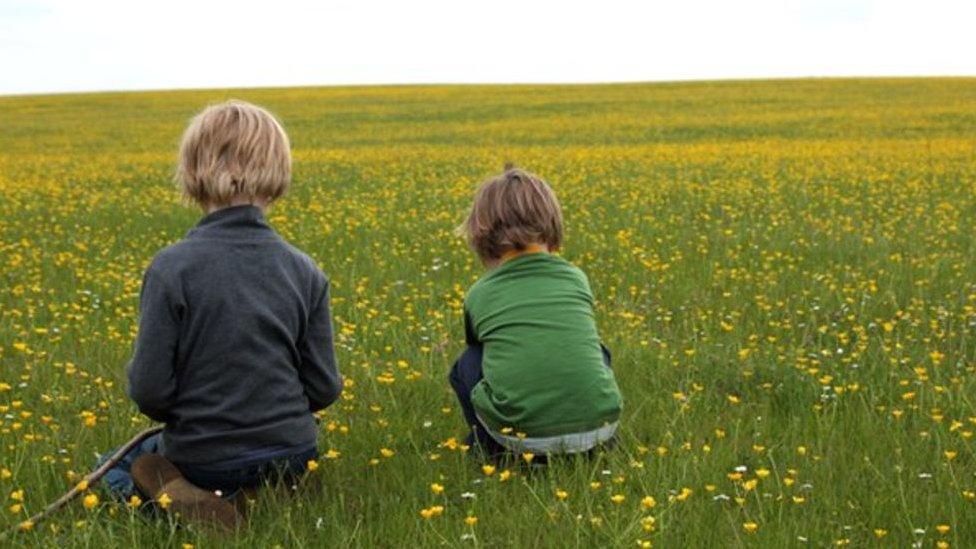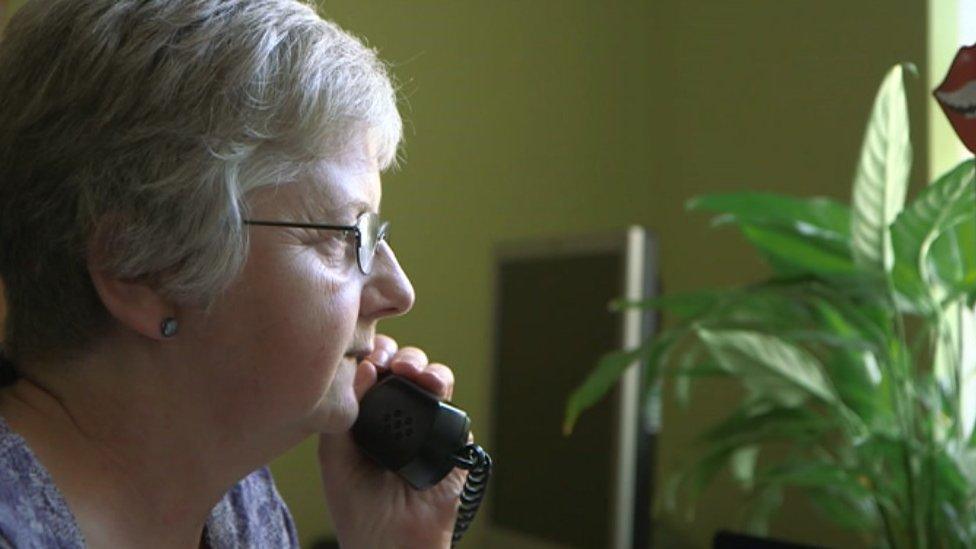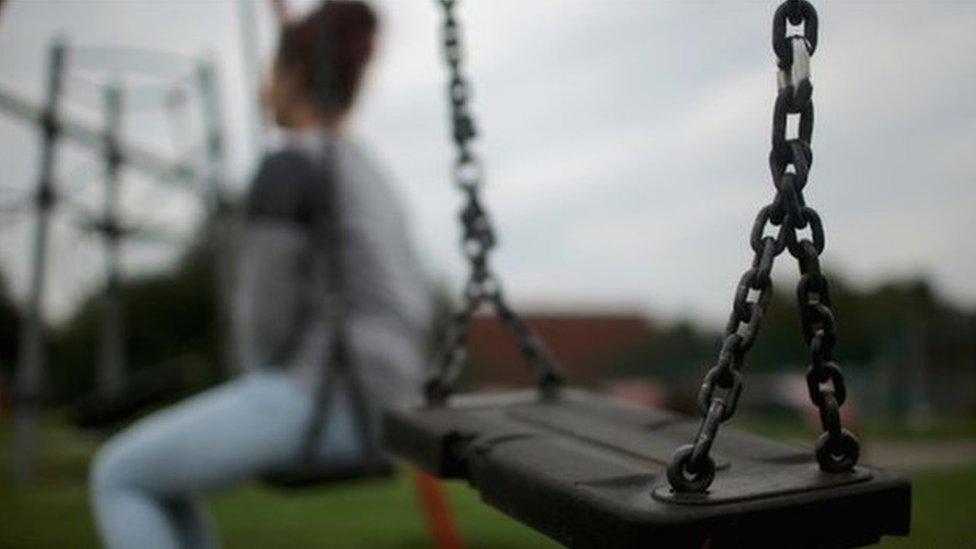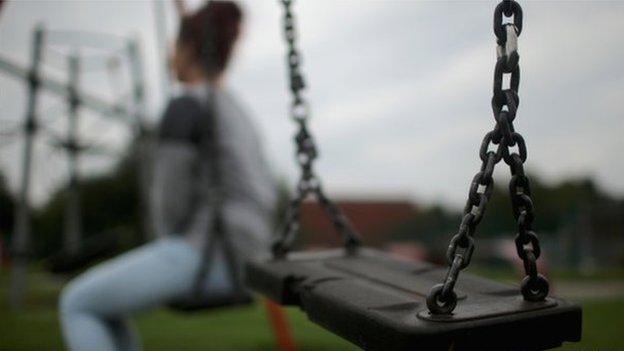Call for new court services in 'failed' Welsh care system
- Published

A judge has called for more investment and new court services in Wales to break the cycle of families having multiple children taken into care.
In one case, 11 children had to be removed for their own safety from one mother over 15 years, BBC Wales found.
Judge Nicholas Crichton said Wales should now adopt Family Drug and Alcohol Courts, external he helped establish in England to break the care cycle.
The Welsh Government said it is examining the issue.
"If you have a system that is routinely removing the fourth, the fifth, the sixth child - and often it's many more than that - then it's a failed system," argued Judge Crichton.
"Because you are in effect condoning the birth of more children who are inevitably going into care, and the emotional cost to those families and those children is immense, and the financial cost to the taxpayer is immense, and you just have to try something different."
Following a BBC Freedom of Information request to Welsh councils, it emerged several authorities had been forced to act to safeguard children felt to be at risk in the same family.
Sixteen of the 22 authorities responded, including:
Blaenau Gwent, where social workers confirmed 11 children had been taken from one mother between 2000 and 2015
Newport and Rhondda Cynon Taff both said they had removed nine children from one family
Swansea had the fewest number - it had removed three consecutive children in the last five years.
Caerphilly Council took four children into care from the same family in the last five years
Judge Nicholas Crichton established a new court service running in parts of England
Judge Crichton said the model of English Family Drug and Alcohol Courts (FDAC) was saving £2.30 for every £1 spent over a five year period, by giving parents a chance to change their ways and stop children being taken into care.
"If we had an earthquake in Wales, the government would immediately come up with millions of pounds - let's say £20m - to help the survivors and the people who suffer as a result of the earthquake," said Judge Crichton.
"The increase in the numbers of care proceedings over the last 10 years and the last 12 months are an earthquake around the corner.
"If they were to invest £10m or £20m in rolling out these approaches, that is money they will get back because we've proved that, and that's what I intend to be saying to ministers very shortly."
Responding to the judge's views, the Welsh Government said it was monitoring the rise in the number of applications to take children into care.
"We are looking at this issue and working with partners to develop a national approach to help reduce the numbers of children entering the care system," said officials.
"Our Integrated Family Support Service (IFSS) provides preventative, targeted crisis interventions to support families, including those affected by drug and alcohol issues, before children become at risk of being taken into care.
"IFSS works with parents to improve their parenting capacity and capabilities, build on their strengths and empower family members to effect long term positive behavioural change."

'Turning your life around'
Taken into care - the mother's story
Alison - not her real name - was in an abusive relationship with a former partner, who took drugs.
Four of her children had been removed and social services had been involved early on in her first child's life, following an accident.
At the time, she said she did not appreciate the impact the abusive relationship had on her children.
"I didn't realise some of the stuff they were seeing until my oldest one took counselling after he'd been removed," said Alison.
"He saw my ex-partner punch me once. He heard all the shouting and screaming."
Since Alison has been working with Action for Children she has turned her life around, has married and gone on to have a child with her new partner - planned for two years with the support of her women's worker.
She said she felt like a different person.
"I feel like I've changed a lot for the sake of the kids. I just feel like I don't run in the same circle of friends anymore. I don't have same influences really."
She now hopes that her other children will be able to come and live with her in the future.


Catriona Houston is the Women's Worker on an Action for Children charity project underway in Carmarthenshire.
She told BBC Wales that about 60% of the women she works with have been in care and a similar amount have been sexually abused in childhood.
"They've grown up with low self-esteem and alcohol is their favourite drug of choice as a means of blocking out pain. They get into relationships with domestic violence, so often they're focused on survival and not on the care of their children."
The impact on a woman of having a child or children removed into care leaves the mother feeling "horrendous grief", said the charity worker.
"The social workers are there for the children and when the children are removed, who is there to support the mother? The mother has needs and that's why she's not parenting properly."

What are the Family Drug and Alcohol Courts?
Set-up in 2015, they bring together court services, social services, substance misuse and expert agencies to help resolve issues around why a parent might be at risk of their children being taken into care.
It takes a problem solving and therapeutic approach and can improve outcomes for children by helping parents change the lifestyle that puts their children at risk of harm.
A team of experts - such as psychiatrists, drug and alcohol workers and domestic abuse workers - support parents and produce an intervention plan for them.
They return to court every two weeks in front of the same judge and without the presence of lawyers to discuss their progress.
It gives parents the opportunity to make changes to their lives and if they succeed, they are able to keep their children in their own care. If they cannot or do not make the changes, the children can be removed into the care of the local authority.
According to Judge Nicholas Crichton this approach has had a success rate of just under 50%.
Currently, Wales does not have access to the FDAC system.
- Published29 June 2016

- Published30 March 2016

- Published10 July 2014
